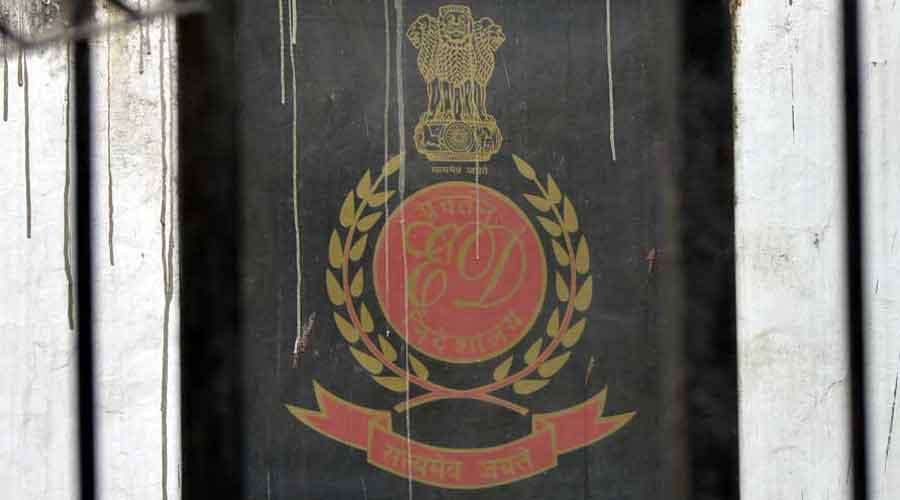The Centre on Sunday promulgated two ordinances allowing three consecutive one-year tenure extensions to the CBI and Enforcement Directorate chiefs, triggering accusations that this was meant to facilitate misuse of these investigative agencies to target Opposition politicians.
Officials said the ordinances would allow the government to bypass a Supreme Court order that forbade any further extension to ED chief Sanjay Mishra, a perceived government favourite who was to demit office on November 19 this year.
Currently, the chiefs of both the ED and the CBI have tenures of two years, with a possibility of extension that is conventionally capped at one year. The ordinances virtually allow these two bureaucrats tenures of five years — if the government is happy with them.
“The two ordinances speak volumes about the Centre’s intentions. The chiefs of these two agencies can now go to any length to please their political masters and obtain an extension,” a former CBI director told The Telegraph.
Opposition parties have long accused the Narendra Modi government of unleashing its investigative agencies, especially the ED and the CBI, to intimidate or settle scores with them. The ED under Mishra has been probing several cases with political implications.
The former CBI director wondered why the government was “in such a hurry” to issue the ordinances — legislative measures that will need parliamentary ratification — just days before Parliament’s winter session, which is likely to begin on November 29.
Bringing the ordinances now, however, makes Mishra their “first beneficiary”, a serving official said, requesting anonymity.
According to the ordinances, the chiefs of the two agencies can be given extensions every year for up to three years after they complete their two-year term. After five years, no further extension can be granted.
The CBI is headed by IPS officer Subodh Kumar Jaiswal, who was appointed in May this year.
Congress leader Abhishek Singhvi tweeted: “Double whammy re 5 yr tenures for misused agency heads. Ordinance Raj, the favourite route of the Modi govt, bypasses parl (Parliament) scrutiny 14 days before parl meets.”
He added: “Extensions per se frowned upon by apex Court. Fresh new appts nt (not) extns under new Parl Act not Ordinance shd hv been done.”
Both ordinances carry the sentence: “Whereas Parliament is not in session and the President is satisfied that circumstances exist which render it necessary for him to take immediate action.”
An official said that when the government had last year given Mishra a year’s extension, it was challenged in the Supreme Court.
In September this year, a bench headed by Justice L. Nageswara Rao had upheld the extension but said that no further extension could be given to him.
It added that a reasonable period of extension can be granted to an official to facilitate the completion of investigations, but only after recording the reasons.
“Any extension of tenure granted to persons holding the post of director of ED after attaining age of superannuation should be for a short period,” the top court said.
The government will have to table the ordinance before Parliament during the winter session in the form of a bill. Parliament can approve it, with or without modifications, or reject it.
Mishra, an Indian Revenue Service officer believed to be close to the political leadership, is supervising probes in high-profile cases such as the National Herald newspaper case that involves members of the Nehru-Gandhi family.
The ED is also probing money-laundering allegations against several Opposition leaders.
It is investigating a money-laundering angle to terror-funding cases registered in Kashmir by the National Investigation Agency, and has attached and seized properties of some people.
Further, the ED is investigating the UPA government’s scrapped AgustaWestland chopper deal, the INX Media and Aircel-Maxis cases in which senior Congress leader P. Chidambaram and his son Karti are accused, and the Nirav Modi and Vijay Mallya money-laundering cases.
Among Congress politicians the CBI and the ED have raided or arrested in corruption cases over the past two years are Chidambaram and Karnataka Congress president D.K. Shivakumar.
Shivakumar had overseen an operation to prevent the BJP poaching on Congress MLAs in Gujarat ahead of a Rajya Sabha election that the late Congress leader Ahmed Patel eventually won.
In 2017, the CBI and the ED had raided properties owned by RJD chief Lalu Prasad’s family members, including his son and then Bihar deputy chief minister Tejashwi Yadav. The action led to the collapse of the grand alliance government in Bihar.












